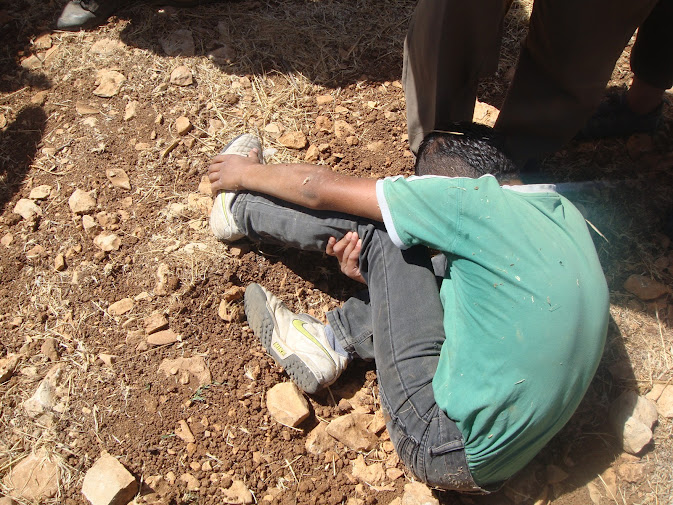Year: 2012
-
Three injured from tear gas after settlers raid Qusra
By Leila 10 September 2012 | International Solidarity Movement, West Bank Three people were treated for injuries related to tear gas after an attack by illegal settlers in the village of Qusra near Nablus on Saturday night. The attack comes roughly a year after Qusra resident Issam Kamel Odeh, 33, died from Israeli gunfire after…
-
Resistance to Occupation continues in Ni’lin
By Anna 10 September 2012| International Solidarity Movement, West Bank On Friday 7th September five international activists attended the weekly demonstration against the apartheid wall in the village of Ni’lin. Since 2004, the villagers of Ni’lin have been non violently protesting against the annexation of their lands. So far the village has lost over 50,000…
-
Israeli soldier kicks 12 year old Palestinian boy, after peaceful demonstration in Beit Ummar
By Ellie 9 September 2012 | International Solidaity Movement, West Bank Palestinian, Israeli, and international activists gathered in Beit Ummar for the village’s regular Saturday demonstration against the nearby illegal Israeli settlement of Karmei Tsur, which has annexed village land. The demonstration focused on the August 27 destruction of a new Beit Ummar greenhouse by…

